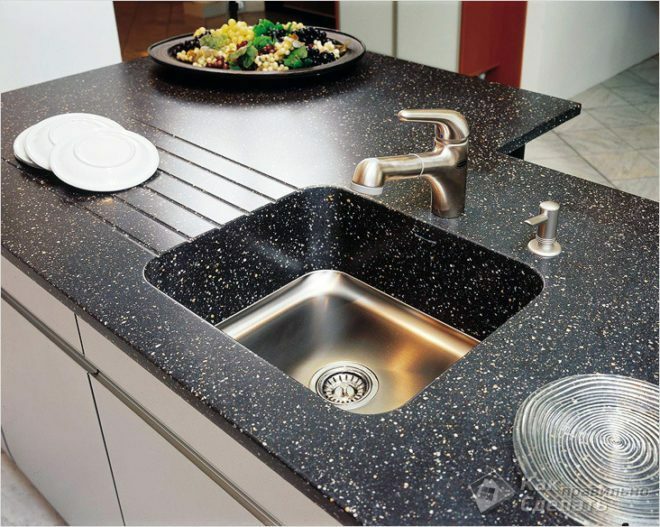- Problem in the water mains: how to fix the problem
- Problem with the inlet valve of the washing machine
- Programmer or control module
- is faultydrum. No less common problem - the water in the washing machine still comes, but very bad, and the wash stretches for many hours.
If this happens, you do not need to immediately start to panic and look for the telephone of the nearest service center. It is possible that you can cope with this breakdown yourself. We suggest that you familiarize yourself with the main recommendations of the masters, how they will cope on their own if the washing machine hums, but water does not enter the drum.
In fact, the reasons for such problems may be different. These can be mechanical damage, various blockages or a failure in electronic control. To make the repair of the washing machine and return the equipment to normal operation, you need to accurately determine the cause of the problem. Only then will it be clear what to do. So what are the main reasons that a washing machine does not get water?
Plumbing Problem: How to Troubleshoot the
If the water does not enter the machine at all or is too poorly filled, immediately check the water pressure in the plumbing. It is not excluded that at that time the repair of the water supply system by the public utilities was being carried out, and an accident on the pipeline is also not excluded. While you are rushing around, not knowing what to do, and cursing your unfortunate washing machine, utilities can, without haste, perform some kind of scheduled repair. Or they blocked the water due to an emergency.
If the plumbing is in order and your plumbing does not cause any complaints, you need to investigate the water supply hose and the tap itself. It is not uncommon that the water supply valve is turned off and water does not flow into the washing machine drum, and the reasons are most often caused by the owner’s forgetfulness or the mischief of children. It also happens that the elastic water supply hose is simply twisted, broken or clamped.

If everything is OK here, it's time to examine the filler hose filter, which protects the washing machine from debris from the plumbing. To inspect the filter, you just need to remove the hose from the tank, and at the same time and clean it from plaque. You just need to hold it for some time under a good pressure of water, although it does not hurt to walk on it a couple of times with a brush. At the same time, the water supply hose itself should be washed in the same way. In order not to prevent this situation in the future, it is necessary to clean the filter and the water supply hose every six months.
The problem with the inlet valve of the washing machine
Valves washing machines are single, double or triple. That is why some washing modes can work properly, while for others the water does not flow well into the washing machine drum. To check each of the valves, the washing machine will need to be dismantled. You will have to remove the top cover, right under it you will immediately find the exhaust valve, which is located in the upper part of the back wall. By the number of channels, you will see coils that block and open water to their cores with their cores. You will also see a gearbox that lowers the water pressure at the common inlet. It is a rubber washer, which should also be removed and rinsed with water. This should be done very carefully, because if the dirt gets into some kind of internal membrane, the valve will constantly let in water and it will be almost impossible to repair it.
How are the coils arranged? Each of them has a core that rests on a membrane with a hole made in the center. If everything is in order, this system is always closed by a pressure return spring. In the case of a power supply to the coil, the rod moves away. That is why water flows freely in each of the wash cycles. Thus, by applying an electric current to each of the coils and disconnecting the terminals, you can check the water flow through each channel.
Faulty programmer or
control moduleThe reason for the weak flow of water into the machine can be hidden directly in the programmer. You need to understand, the more in your typewriter electronics, the greater the likelihood of failure of this kind. Most often, such problems begin after three to four years of operation, especially under conditions of permanent violation of the rules of operation. If the cause is in the programmer, then the exhaust valve is serviceable, and there is simply no command to start the water. Consequently, the cause of the breakdown should be found in the electronic filling. Immediately you need to tune in that it will be very difficult to repair the control module yourself. Electronic control elements are subject only to specialists. An attempt at self-repair only threatens to worsen the situation and increase costs.

Faulty pressure sensor
The failure of a pressure sensor, also called a pressure switch, also leads to a weak flow of water into the machine. This sensor is designed to monitor the amount of water entering the machine. When the water is low, the sensor simply does not allow you to turn on the wash. If the sensor is broken and unable to estimate the volume of incoming water, it simply ceases to flow. Such a reason requires the replacement of the pressure switch, which can be performed independently or consult a specialist.

The
hatch lock is broken. This is a relatively common cause of washing machine breakdowns. The door does not open or close tightly, this may be the reason why the washing machine does not get water. Then you just need to replace the hatch locking device. There are other reasons for the failure of the door locking device. For example, it can be loosened hinges or a damaged door tongue. Repair is often the replacement of the hatch, although experienced craftsmen can replace the individual parts of the locking devices, but still repair requires the complete dismantling of the door. And the savings on the details may result in extra costs to pay for the work of the master.
Why is there no water in the washing machine - what to do?
Contents:

How to properly install a sink in the kitchen? Step by step guideRepair OfKitchens
The kitchen is a place of coziness, peace and comfort of the family. This atmosphere is created by the kitchen set and the design of the room itself. The shell also plays an important role. The mai...
Read More
What color to paint the walls in the kitchen? Interior from the designerRepair OfKitchens
Carrying out repair work in the kitchen is a very responsible and painstaking action in itself. Having accepted the intention to change the appearance of housing, many issues have to be resolved. S...
Read More
What wallpaper to choose for the kitchen: tips and best interior ideasRepair OfKitchens
The most important place in every home is the kitchen. Indeed, in this area, most often all household members gather, and the hostess spends most of her time here. Correctly selected wallpapers in ...
Read More